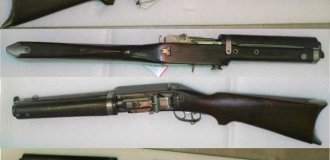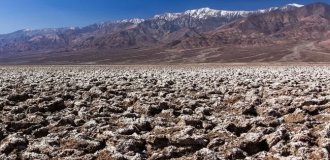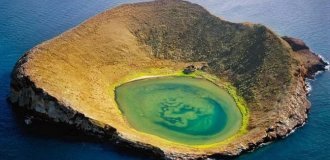For me, a citizen, Crimea has always been mine, even though I don’t like the heat, resorts and beaches. He was mine in the USSR when my parents brought me there as a baby. It was mine in 1993, when my friend and I went there and lived on the shore in a tent for a couple of weeks, exchanging rubles for hryvnia at the station. Crimea was mine in 1999, although I already accurately estimated that in terms of price and service, Egypt and Turkey are much more mine. Only this year, Crimea, as I see it, has become completely not mine. Skyrocketing prices for air tickets (four times higher than Moscow-London), week-long queues for crossings and a bloody war where there used to be highways. Let's add status problems here - I used to be a welcome guest in Crimea for everyone. And now for some of them (even if they are a small percentage) I will suddenly be a Russian occupier. And now maybe they’ll secretly spit in my soup. So whose did Crimea become? Well, not mine for sure. Perhaps it now belongs to the oligarchs. Perhaps to the god of war. Possibly aliens. But for me, an ordinary citizen of Russia, he became mine a hundred times less than he was before.
From the position of a citizen, I don’t understand the term “mine” at all. I have a friend, a Russian citizen, who dreamed of living with her children in Crimea and at one time bought a house there. And according to all the rules, it was recorded in some kind of cadastral register of land ownership. And Crimea became hers. Much more than for other citizens of the country of Ukraine, to which he formally belonged according to the cards. Do you understand the absurdity of the situation? Property within property. A map within a map. I take a sheet of paper, paint a large square on it and say: this is all mine. You draw a small square inside this square and answer: and this is mine. And we live calmly with this paradox. And then a crowd of complete strangers comes and shouts “Crimea is ours!” Whose exactly, point your finger?
I have many different Russian friends who have officially made a small piece of another country theirs. One of my friends, an ardent patriot, has an apartment in London. Another, an ardent liberal, in Spain. The third good friend has an apartment in Bulgaria. The fourth friend, not at all burdened by high income, barely saved up 200 thousand rubles for a small house in the mountains of Slovenia. None of them were hampered by the fact that neither Britain nor Slovenia were ours. But Chechnya is ours. According to all maps and settlement agreements. Does anyone want to buy real estate in Chechnya or at least spend a vacation there with children?
The fairy tale about “we got ours back” has no effect on me, it only scares me. Then Finland, Poland and the Baltic states must be returned to Russia, and Alaska. What if everyone starts like this? Crimea will be demanded back by some Türkiye. Because Russia, no matter how much it shouts “Crimea has always been ours,” but what does Russia have to do with the Crimean Khanate, whose Crimea was originally? Then Japan will demand the Kuril Islands - they were taken from them so recently and so openly that this is the only reason why we have not yet signed a peace treaty with Japan; officially we are still in a state of war. China will want to rightfully return Siberia and the Far East. Germany will demand its native Koenigsberg, which for some unknown reason has recently belonged to Russia, contrary to the laws of logic, geography and space. And if it works out, then Germany may demand Smolensk within the 1942 borders. Well, Mongolia will remember how it once owned a “small” part of Russia from the Black Sea to Khabarovsk, and will demand to protect the interests of all living Tatars.
Of course, at this point various people run out and shout that the people of Crimea have chosen their own path... No, of course, they don’t choose the path that way. They choose like Scotland: they have been preparing an open and fair referendum for many years. If tomorrow instability, chaos and a struggle for power sets in in Russia, and at this time the Far East is flooded with Chinese soldiers with worn out stripes, they blockade all government institutions with weapons in their hands and hastily organize a referendum, I will also not accept its results. Even if they tell me that more than 50% of the residents of the Far East preferred to be a Chinese autonomy rather than a region of Russia. I won’t even try to figure out whether 52% voted there or 92%, was everything honest or an invention of Chinese technologists. Referendums are not conducted that way, period.
In general, it is completely unclear to me, as a citizen of Russia, why Crimea is ours today. And in what place has Crimea now become mine, where before it was not mine?
Perhaps they will object to me that I am arguing from the point of view of a citizen, but should I be speaking from the point of view of the country? Okay, let's try, say out loud the truth that is not customary to voice. Consider the following as my own fantasies. So, I am the country.
Crimea was a peninsula, but became an island. On the one hand, it has a sea with non-potable water, on the other hand, a foreign state, with which I, as a country, managed to quarrel to the point of war. There is no industry in Crimea. Agriculture - three peach trees and a half-withered vineyard, half cut down during the anti-alcohol campaign of Perestroika. Fresh water and electricity come from a country that now feels like a fascist to us. All roads and railways remained there, with the so-called fascists.
As a country, I found myself in the position of a gopnik who for some reason snatched a rare mobile phone from a former friend (“I had nothing to do with it! The mobile phone jumped into my pocket!”), and the next morning I realized that there was neither a charger nor a box for it with documents. And there is nowhere to get such a charger with a rare cord or it is very expensive. And without documents, a mobile phone is now considered stolen.
As a country, I am now trying to make my own charging lanyard. That is, to create a corridor to Crimea through the state of the so-called fascists, organizing a civil war there. And I can't do it. Because the closest path to the doors of Crimea (Perekop or at least Sivash) runs along the coast and consists of four regions: Lugansk, Donetsk, Zaporozhye and Kherson. Hasn’t anyone seen a map of Ukraine and doesn’t understand what’s happening?

In a couple of nearby regions - Lugansk, Donetsk - the fire broke out willingly. And then it didn’t flare up. It’s clear that Slavyansk was surrendered quickly and willingly - it’s not in my way. For the same reason, neither in Kharkov, nor in Sumy, nor in other Russian-speaking regions neighboring Russia, even a conversation arose. Not on the way. And along the way - Mariupol. Vital, but there's a problem with it. I’ll send more equipment and staff volunteers on vacation, and, for example, I’ll take Mariupol. But then we need to go to Berdyansk, Melitopol, Kherson... But the people there are different, I don’t see anyone willing to make a revolution. My border is far away, and the navy does not secretly attack. The corridor was not cut through, the mobile phone could not be charged.
What would I, as a country, get even if everything worked out? A new unprofitable region from which I can’t turn into a nanotechnology center, a blooming garden on dry stones, or even a profitable resort—I couldn’t turn a profit in Sochi either.
What did I, as a country, actually get? Island with ferry crossing. Civil war near our own border. And a new cold war with all the leading powers of our globe. General condemnation. Sanctions. The image has fallen below the plinth. International tension. Economic decline and the national currency, which has already depreciated by almost a quarter. Excellent acquisitions, a country that has been shouting about stability for so long!
And let's tell the truth to the end. I, as a country, do all this with Ukraine (and before with Georgia) for only one reason - for the sake of my old military doctrine from the Cold War of the 60s of the last century. According to which, the closer NATO places its nuclear missiles to my borders, the shorter the flight time of a nuclear warhead at the time of a nuclear war will be, and the higher the risk that my anti-ballistic systems, developed and assembled half a century ago, will not have time to react. Everything is fine with the USA - they are on the other side of the globe, but they once didn’t let me place my missiles under their noses in Cuba, just before the war started. Therefore, today all my hysteria and international policy are the same: by all means push NATO bases away from our borders. In Europe, France and Britain have nuclear weapons, and US missiles are secretly located at bases in NATO countries: Belgium, the Netherlands, Turkey, Germany, Italy (in the Far East - secretly Japan and South Korea). Long international dances with a tambourine, subtle political intrigues, economic and energy blackmail - this is how I managed for many years to persuade the Baltic countries and all Poland and Finland not to engage in armament. The conditional circle is outlined - NATO nuclear bases are located in those countries that are still at a respectful distance from my borders, giving me the necessary response time to the launch. Friendly Belarus, Ukraine and Kazakhstan defend my territory with their bodies. Where are the old, rusty, but still friendly to me means of detecting enemy launches? And then, lo and behold, Ukraine suddenly appeared right next to us. Ukraine! Which during the Soviet era was the most nuclear territory, since from here we were aiming for the eyes of all the capitalists of Europe. Five nuclear power plants (including the ill-fated Chernobyl) and one of the largest arsenals of nuclear weapons in the world at the time of the collapse of the USSR (almost 4,000 missiles). Of course, the weapons were removed from Ukraine, but the habits remained! And so, this very disarmed (but in the past nuclear to the teeth) Ukraine went crazy, threw my caretaker off the throne and shouted like this: “now I want to go to Europe and NATO!” How can I, the country, continue to live with such a map?

What should I, as a country, do? Yes, if I hear that one of my neighbors is going to join NATO, I will lie down with my bones, draw a buffer zone on the map and burn it with napalm in a local war, just so that this does not happen! I, the country, have not yet experienced Georgia. And here is the whole Ukraine!
Well, of course, I, as a country, don’t care at all that no one from NATO was going to throw nuclear charges, but they are simply scared to hell of me, as well as Islamists and other political inadequates. And I, as a country, don’t want to think about the fact that a lot has changed in technology over 50 years, so anti-ballistic defense depends on the sum of the latest technologies, for which the distance to the launch point is not the only and not the main criterion for success. But I, as a country, cannot and do not want to improve my anti-missile systems. I want fir-fir-fir. Just like the good old seventies.
This will end with China joining NATO. Because he wisely keeps his mouth shut, but has long figured out who is his main market and main supplier of technology, and who is his dangerous and unpredictable neighbor, who has been at war with former comrades on the right and on the left for every five years.
This is how I reason as a citizen and as a country.
Source: Leonid Kaganov





















